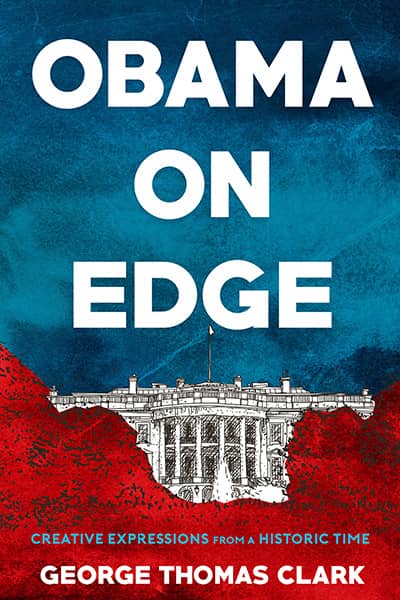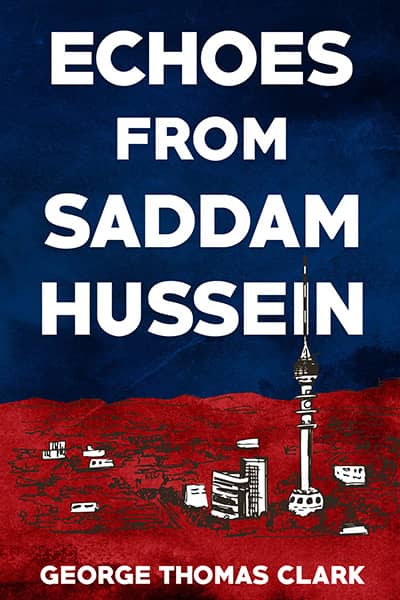Letter to President Bush: Try to Stabilize Iraq, then Leave
May 23, 2005
Dear President Bush,
Let’s relax a few minutes and acknowledge that you are the most powerful man in the world, and the United States is fighting another war in Iraq, and the war is already more than two years old and the insurgency more deadly than ever and that your strategic reasoning for putting troops there – to stabilize the region for democracy – is flawed. I’m going to keep this rudimentary because I know you don’t like to read and study, and instead depend on your instincts and your faith to try to reshape the world. It will be necessary to present some statistics, but since you have an MBA the numbers, and their significance, should be understandable.
We are encouraged to note that subsequent devastation will be much less severe if you begin pulling American troops out of Iraq early next year. You must do this because of the explosive facts that many of your generals have been talking about publicly. I’m sure you at least heard about the New York Times article of May nineteenth. Don’t bother ripping those liberal journalists; they simply quoted your experts in uniforms. Here are the key points. One officer said the United States could be mired in Iraq “many years.” And other officers said that success is not assured and failure is a possibility.
Why are military leaders becoming so pessimistic? It’s those damn statistics, the kind that reveal the truth. All last year there were twenty-five car bombings in Baghdad, but there have already been twenty-one such bombings the first three weeks in May, and one hundred twenty-six the last eighty days. Nationwide, about five hundred Iraqis have been blown up by such bombs this month. Many victims were Iraqi soldiers and police. Tragically, the Iraqi security forces are still more likely to be killed by insurgents than to kill or even engage them.
That’s always been the case in this war. Perhaps that will change with vigorous U.S. training and ongoing combined operations. It really must change. The Iraqis are going to have to take care of themselves, aren’t they? We now realize how “euphoric” so many people were after the Iraqi election in January. It was a great day. Let us hope for many more such days in Iraq, and in every other country in the world. People deserve self-determination. You’ve been right about that. But you’ve been wrong that you can bomb and occupy people into permanently accepting our notions of democracy.
People simply hate foreign soldiers on their soil. That’s why the insurgents continue to draw recruits from Sunni Iraqis as well as from Saudi Arabia, your family’s close financial ally and supposedly a friend of the United States. Wasn’t that something a few weeks ago, your holding hands with one of the Royal Saudi dictators? When linked with your distinguished guest, did you discuss the tense admiration your generals have for the “resilience” of the Saudi and Iraqi insurgents. The generals also praised their ability to learn quickly and to improvise. The insurgents are decidedly learning much faster than Iraqi soldiers.
Even when the generals try to be optimistic and say they mustn’t take their “foot off the throat” of the insurgency, it resonates with pessimism. After all, if a foot were effectively on its throat, the insurgency wouldn’t be able to plan and execute an average of one of two car bombings a day for almost three months. And we must acknowledge the dedication – or fanaticism, if you prefer – of the enemy. His bloody limbs are being found duct-taped to steering wheels and accelerators. These people, Mr. President, seriously do not want us there.
I regret having to quote another New York Times source, but really it’s a book I’m citing, one called “Dying to Win: The Strategic Logic of Suicide Terrorism.” You won’t have to study the forthcoming volume. Just read the article by its author, Robert A. Pape. He’s got infinitely more valuable information than anyone who advised you before you attacked Iraq. Pape, in fact, has “compiled a database of every suicide bombing and attack around the globe from 1980 through 2003… (and discovered) there is far less of a connection between suicide terrorism and religious fundamentalism than most people think…
“Three general patterns in the data (emerge)… First, nearly all suicide terrorist attacks… took place as part of organized political or military campaigns… Second, democracies are uniquely vulnerable to suicide terrorists… Third, suicide terrorist campaigns are directed toward a strategic object: from Lebanon to Israel to Sri Lanka to Kashmir to Chechnya, the sponsors of every campaign are seeking to establish or maintain political self-determination.
“Before Israel’s invasion of Lebanon in 1982, there was no Hezbollah suicide terrorist campaign against Israel; indeed, Hezbollah came into existence only after this event. Before the Sri Lankan military began moving into the Tamil homelands of the islands in 1987, the Tamil Tigers did not use suicide attacks. Before the huge increase in Jewish settlers on the West Bank in the 1980’s, the Palestinian groups did not use suicide terrorism.”
Most of us knew some of that but few had linked all of it so succinctly and with such mathematical precision. It’s like two plus two: “Suicide terrorism is mainly a response to foreign occupation.” Now you know. This insight can be of great strategic value. You realize you’ve got to get out or face eternal enmity. So how do you leave? You first continue hustling to upgrade water and electricity and other services for the Iraqi people. And you privately tell Iraqi politicians there are limits to U.S. power and money and political endurance, and that they must learn to fight independently. That’s reasonable. They’ve had the backing of a hundred fifty thousand foreign troops for more than two years – for three years by the time you begin major pullouts in early 2006 – and they’ve been given billions of dollars and lots of the finest military equipment. With all that, shouldn’t they be able to maintain their fledgling democracy against a bunch of highly-motivated but reactionary suicide bombers?
Sincerely,
George Thomas Clark














